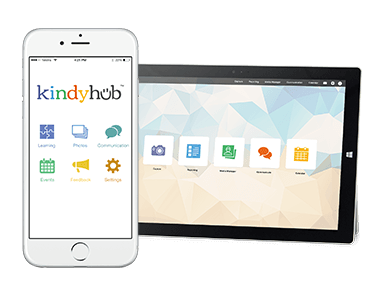Curriculum
Early Years Learning Framework
The Early Years Learning Framework is an early childhood curriculum framework, which will guide educators in developing quality education programs. The framework describes the principles, practice, and outcomes to support and enhance young children’s learning from birth to five years, as well as their transition to school. This will help ensure consistency in the delivery of learning programs around Australia.
The Framework also has a strong emphasis on play-based learning as play is the best vehicle for young children’s learning providing the most appropriate stimulus for brain development.
The five Learning Outcomes are designed to capture the integrated and complex learning and development of all children across birth to school-age care. The outcomes are:
- Children have a strong sense of identity.
- Children are connected with and contribute to their world.
- Children have a strong sense of wellbeing.
- Children are confident and involved learners.
- Children are effective communicators.
The Early Years Learning Framework underpins universal access to early childhood education and has been included in the National Quality Standard to ensure the delivery of nationally consistent and quality early childhood programs across the country.

Weekly Program
The Weekly Program supports the types of play that children will be engaged in throughout the week within the environment.
The program is used to make sense of and plan to extend the learning that has been happening with our children. The documents are a record of the learning journey and a guide for the Educator.
All programs are prepared with a strong emphasis on the fundamentals such as language, literacy, math, creative arts (art, music, and dance), fine and gross motor skills, problem-solving, investigation, cognitive, and social skills.
Each child’s individual needs and interests are taken into account whilst preparing the program.
Daily Routine at Lulu's
Routine is an essential part of children’s life, promoting health and contributing to a great development. This shows respect for them, as we are keeping them informed about what is going to happen throughout the day and nurturing the feeling of being safe and secure at the environment that they live. Routine is part of the process of the education!
At Lulu’s Family Day Care, the routine is pleasing and relaxing. The days are planned with experiences based on children’s interest and current events. All transitions are smooth when getting ready into new activities (indoor and outdoor), meals and rest time. Our routine also respects their individual needs, having moments of plays and moments of relaxing their bodies and minds, which is really important for the brain development.

> Transition time includes the encouragement of children packing away the toys that they have played. It provides opportunities for them to value and respect our materials and resoucers. Also it is an excellent moment to improve cognitive skills such as categorisation, sequency, literacy and numeracy skills. Likewise, it is a great physical activity as they lift stuffs, bend to pick up toys, strech arms and etc. In addition, it is a wonderful way to teach them good life skills like responsability, consequenses, tidying, sorting, orderly and organising.
> Free play time is the most important part of the day. Play is the key for learning, development, confidence and wellbeing. On free play time at Lulu’s, children have important and great tools to enhance creativity, imagination, pretending play and everything that provides health development in the early years.
Kindyhub

Kindyhub is secure web-based software enabling educators to simplify and streamline documentation and enhance communication with parents, in-turn improving children’s learning outcomes.
At Lulu’s Family Day Care we use Kindyhub for the development of our weekly program, as well as monitoring our activities, routine and planning.
This tool allows us to develop and follow the individual and group observations of all our children, also facilitating the daily communication with the parents, who will receive information, photos and videos of their children during the day, being able to respond and interact dynamically via mobile phone or computer.
